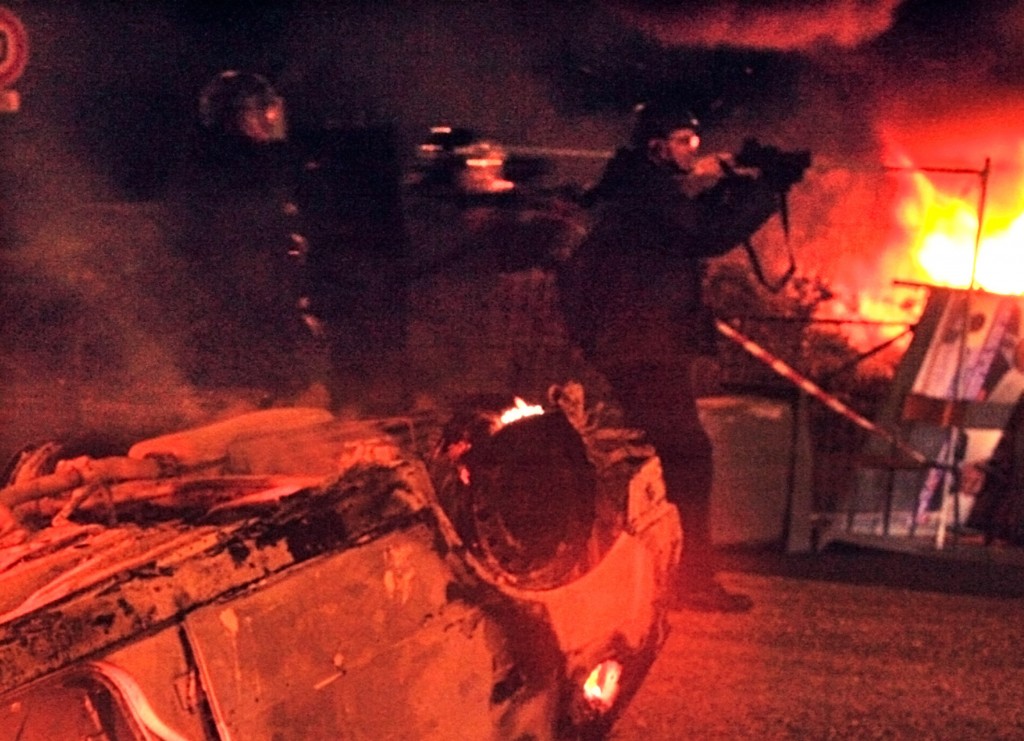
Comment: Because France wasn't towing the Zionist line:
As authorities in France continue to piece together events that led up to the Charlie Hebdo attack and to hunt for other Islamic extremists, it's important to note that there are significant differences between American and French society. The horrific and tragic assault on the satirical newspaper and a supermarket serving the Jewish community occurred in a specifically French context of racial and religious tensions.
From a certain perspective, France and the other Western European countries are marvels of successful social democracy in ways that American liberals can only dream about: excellent schools, public transportation and infrastructure; universal healthcare that has been a fact for generations; even troubled economies are buttressed by still resilient welfare states. There's little of the street crime that plagues many American cities.
But despite persistent American conflicts over race, France's issues with its large Arab and Muslim minorities may run even deeper; it starts with its refusal to admit that there is really a problem. Lex Paulson, a former Capitol Hill staffer who has studied and taught at the elite Sciences Po Institute of Political Studies in Paris for the past three years, says, "French political culture is one-dimensional, with a strong attachment to the abstract ideals and national values of the 'republic' embedded in the French mind-set. The political class is lethargic. So racism is harder to fight because no one acknowledges it."
Those ideals may be similar to American ones, defining citizenship based on equality and inalienable rights. But, as Paulson says, "the centralization of France is hard to overstate. Everything is in Paris. Paris becomes a vessel of Frenchness."
No matter the importance of any one city or region in the United States, it would be impossible to say that of New York, Washington, Chicago or Los Angeles. The sheer concentration of power and influence in Paris means that other voices, especially Arab and Muslim ones on the periphery in the banlieus (suburbs), are rarely heard or understood.
Comment: One of the points of the Charlie Hebdo false flag was to make sure everyone's voice is heard, and 'correct':
Furthermore, "the republic doesn't recognize ethnic groups, only [individual] people," says Jean Kempf, a professor of American Studies at the University of Lyon. "France hasn't really changed that much since the revolution of 1789. We are extremely segregated and extremely unequal in reality. This was forgotten and masked for most of the past 50 years when the economy was booming, but when the going gets tough, we're ready to do the unspeakable."
The unspeakable that Kempf refers to is not the barbarity of terrorism, but the betrayal of French Jews during the Second World War. "French Jews were totally integrated. They thought they were part of the republic. But then they were NOT," Kempf continued, explaining that Arabs and Muslims in France today are well aware of that baneful history, when more than 70,000 French Jews were deported - by their fellow French citizens collaborating with the Nazis - and slaughtered.
"There's no space to be anything but French," Kempf explained. "If you say 'I'm also Algerian', that makes you a bad French person. There's only stigmatization and pain if you try to say that. We lack the intellectual tools to accept that you can be both French and _____. So it's better to be a visible minority in the United States, where you can have, if you wish, this double identity."
Comment: There has been constant, militant agitation against the Muslim population for the past decade and a half, across North America and Europe.
Those banlieus surrounding French cities have become notorious ghettos. Half the population in them is of foreign origin, unemployment twice the national average and almost 40 percent of residents live below the poverty line.
For if the very definition of what it means to be "French" cannot be expanded to include formerly foreign ethnicities, religions and cultures, then what does France have to offer to its immigrants and descendants of immigrants, other than a narrowly defined assimilation that may not even be respected when it matters most?
That the policeman killed on the sidewalk, Ahmed Merabet, one of the slain Charlie Hebdo editors, Mustapha Ourrad, and the hero of the supermarket siege, Lassana Bathily, were all Muslim has been much discussed. That is both a positive sign pointing toward how contemporary France is redefining identity, and a reminder of how much further they have to go because that diversity is not yet implicit.



Comment: Also see: